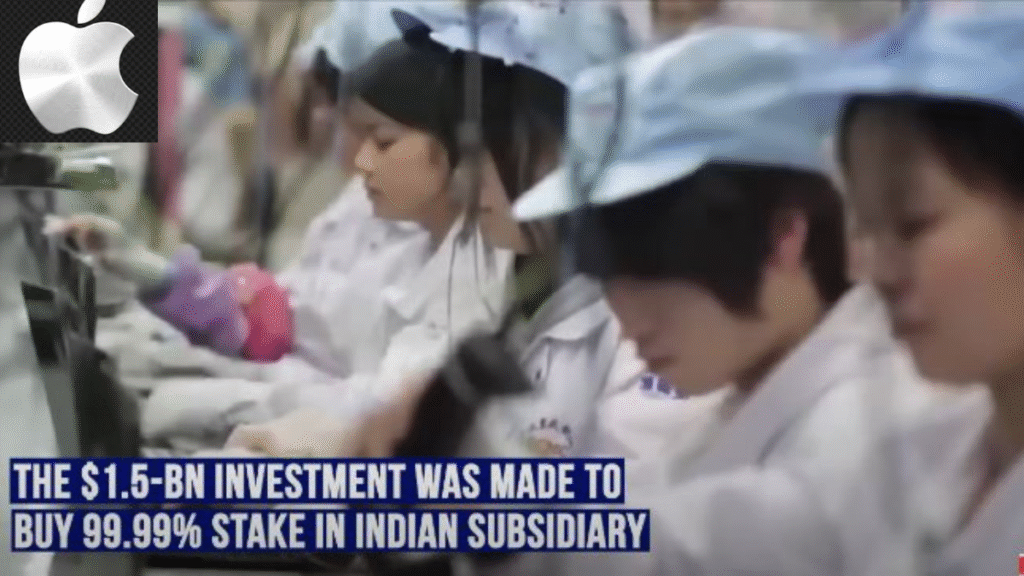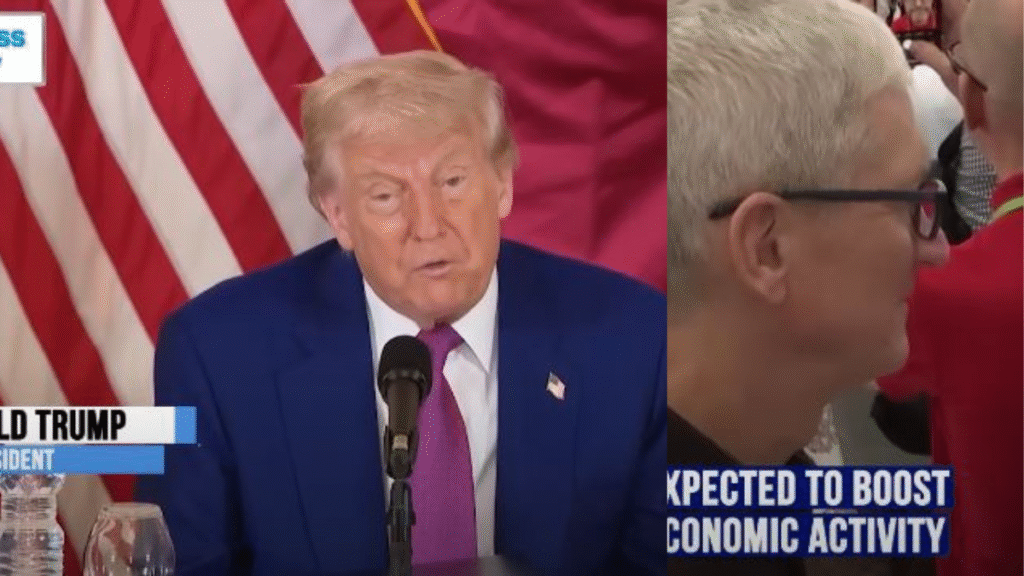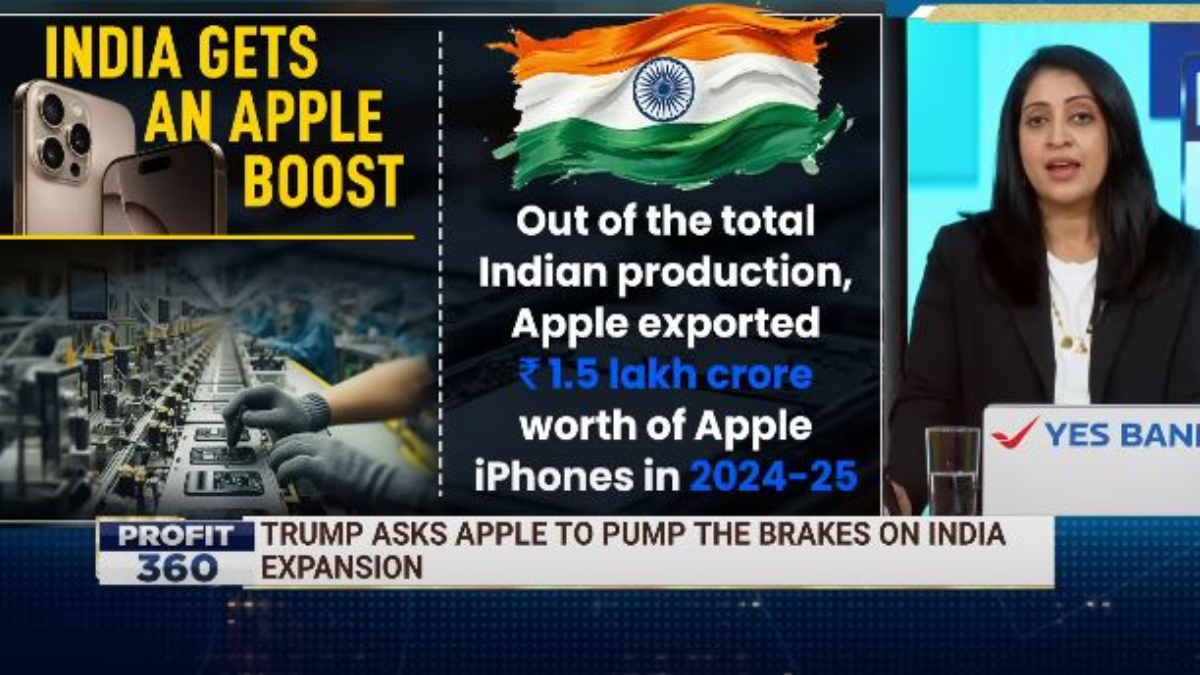In a major geopolitical twist, former U.S. President Donald Trump has announced a 25% tariff on iPhones produced outside the United States, an aggressive policy shift that casts a shadow over Apple’s global manufacturing strategy. The announcement directly challenges the momentum behind Apple expands India manufacturing a critical initiative aimed at diversifying its supply chain and reducing dependence on China. Despite the looming tariff threats, Apple is doubling down on its commitment to India. Through its primary manufacturing partner, Foxconn, the tech giant is channeling a massive $1.5 billion investment to build a new display module assembly facility near Chennai, Tamil Nadu. This upcoming plant is not only set to produce vital iPhone components but also expected to generate around 14,000 new jobs. The move reinforces Apple’s long-term vision to mitigate supply chain vulnerabilities while deepening its presence in one of the world’s fastest-growing tech manufacturing hubs.
Trump’s Tariff Announcement
On May 23, 2025, Donald Trump declared that Apple must pay a tariff of at least 25% on iPhones produced outside the U.S., including those assembled in India. He emphasized that iPhones sold in the U.S. should be manufactured domestically, stating, “I have long ago informed Tim Cook of Apple that I expect their iPhones that will be sold in the United States of America will be manufactured and built in the United States, not India, or anyplace else.
Apple’s Manufacturing Shift to India

As Apple expands India manufacturing, the company continues to shift a significant portion of its production operations away from China a strategic pivot driven by rising geopolitical tensions and tariff concerns. By March 2025, this shift became more pronounced with 97.6% of Apple’s iPhone exports from India headed directly to the U.S. market. Collaborating with key partners like Tata Electronics, Pegatron and Foxconn Hon Hai, Apple is steadily building a robust manufacturing ecosystem within India. This expansion not only strengthens its global supply chain resilience but also aligns seamlessly with the Indian government’s Production-Linked Incentive (PLI) scheme which incentivizes companies to boost domestic production.
Financial Implications of the Tariff
The proposed 25% tariff could have significant financial repercussions for Apple. According to Morgan Stanley, even with the tariff, it would still be more cost-effective for Apple to continue production abroad than to shift manufacturing to the U.S., where labor and operational costs are substantially higher.
Analysts predict that the tariff could add approximately $110 to the cost of each iPhone, potentially leading to a price increase of less than 5% globally. However, if Apple decides to absorb the costs, it could impact the company’s profit margins.
Impact on Apple’s Stock and Market Position
Following Trump’s announcement, Apple’s stock experienced a decline, reflecting investor concerns over the potential impact of the tariff on the company’s profitability and supply chain strategy. The stock had already been under pressure due to escalating trade tensions and the company’s significant exposure to international manufacturing operations.
Challenges of Shifting Production to the U.S.

Relocating iPhone production to the U.S. presents several challenges for Apple. Establishing manufacturing facilities domestically would require significant investment, time, and a skilled workforce. Moreover, the existing supply chain infrastructure in Asia, particularly in China and India, offers efficiencies that are difficult to replicate in the U.S.
India’s Role in Apple’s Global Strategy
India has emerged as a crucial player in Apple’s global manufacturing strategy. The country’s favorable policies, growing infrastructure, and skilled labor force have made it an attractive destination for electronics manufacturing. Apple’s increased investment in India not only supports its supply chain diversification but also contributes to the country’s economic growth and employment generation.
Conclusion
Donald Trump’s proposed 25% tariff on iPhones manufactured outside the U.S. presents a significant challenge to Apple’s ‘Make in India’ plans. While the company has made substantial progress in shifting its manufacturing operations to India, the tariff could impact its cost structures and pricing strategies. Apple now faces critical decisions on whether to absorb the additional costs, pass them on to consumers, or reconsider its manufacturing footprint. The situation underscores the complexities of global supply chains and the influence of geopolitical factors on corporate strategies.
